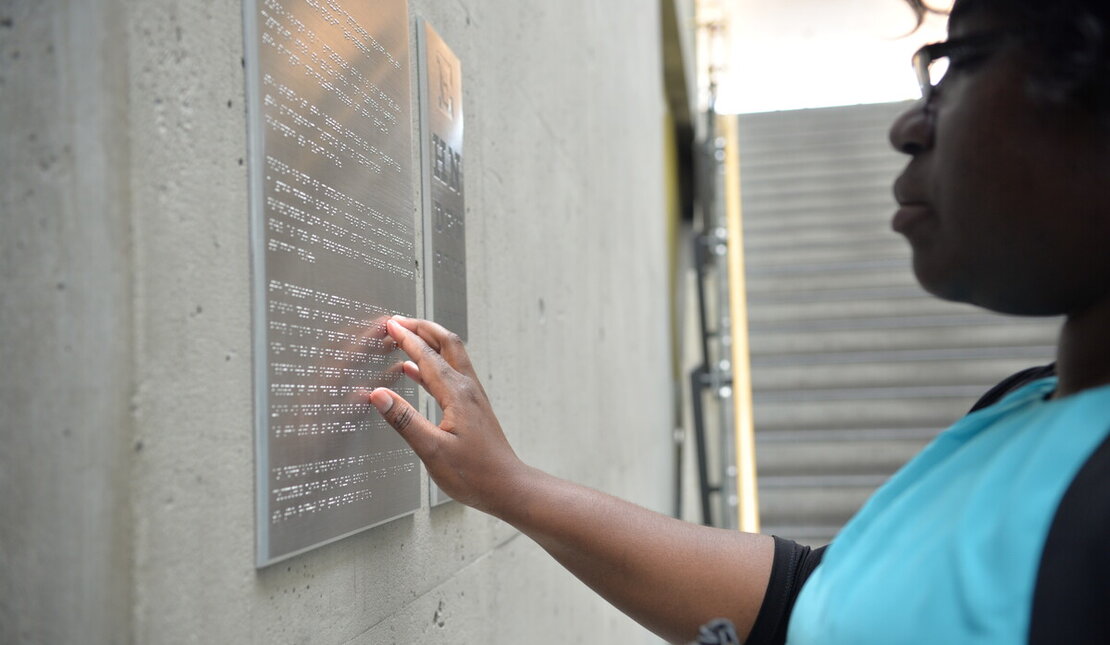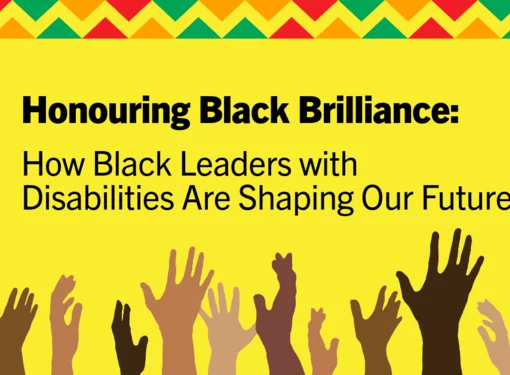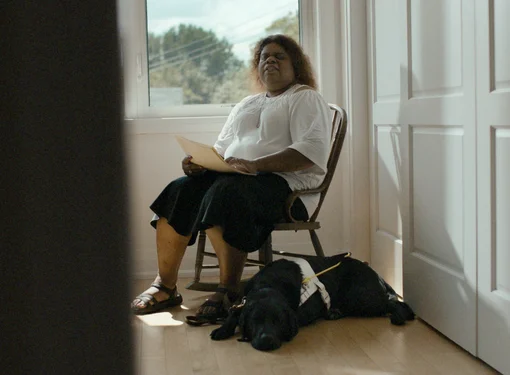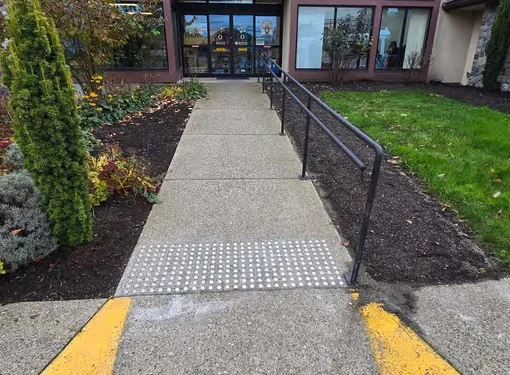The Importance of Braille on World Braille Day
Today is World Braille Day, a day dedicated to raise awareness of the issues impacting people living with sight loss, and a day to celebrate the birth of Louis Braille who invented the braille system.
Louis Braille once said “braille literacy is equal to print literacy, and literacy is what makes people equal."
Braille literacy has transformed the lives of those who are blind for nearly two centuries. With the invention and evolution of assistive technologies such as screen readers, many argue that Braille is no longer relevant and has become needless, but in my experience, that is not the case.
What is Braille?
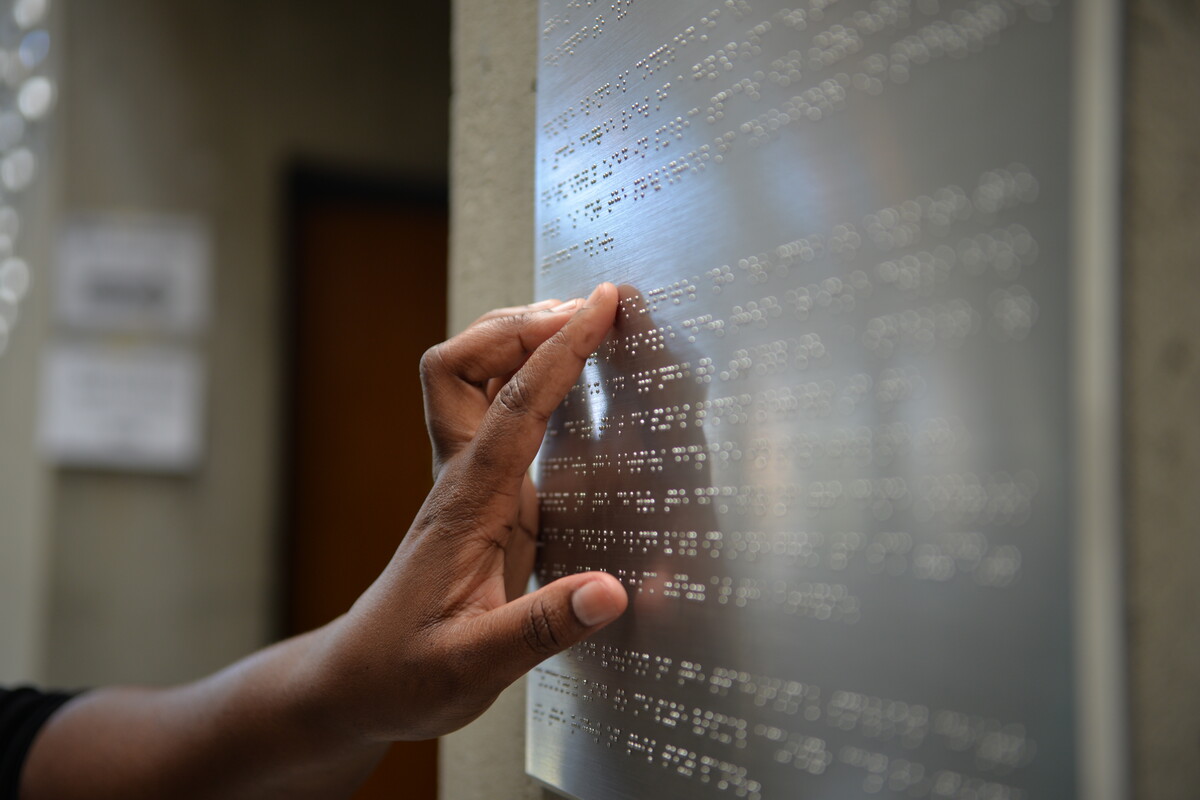
Braille is a tactile way of reading and writing. It is a code made from six raised dots on a grid that helps form letters, numbers, and other symbols. The system has 63 different combinations and can be translated into almost every language.
Does Braille still matter today?
The ability to read and write braille promotes independence.
Braille allows people who are blind or have vision loss to make notes, to select the right floor while using elevators, to reference materials, label the computer keyboard, and to read room numbers, among other uses. It eliminates the need to seek assistance to accomplish basic tasks such as reading personal bank statements when it can be delivered in braille form. Being able to label everyday items in the home increases one's independence.
As a Digital Accessibility Specialist, I host training sessions on digital communications and accessibility. Having a Braille printer allows me to print my presentation in advance to prepare for each presentation, and to access my speaking notes during presentations just like anyone who can read them on the screen. Without braille, I will have to frequently pause the presentation in order to listen to each slide. Braille enables me to be efficient at work.
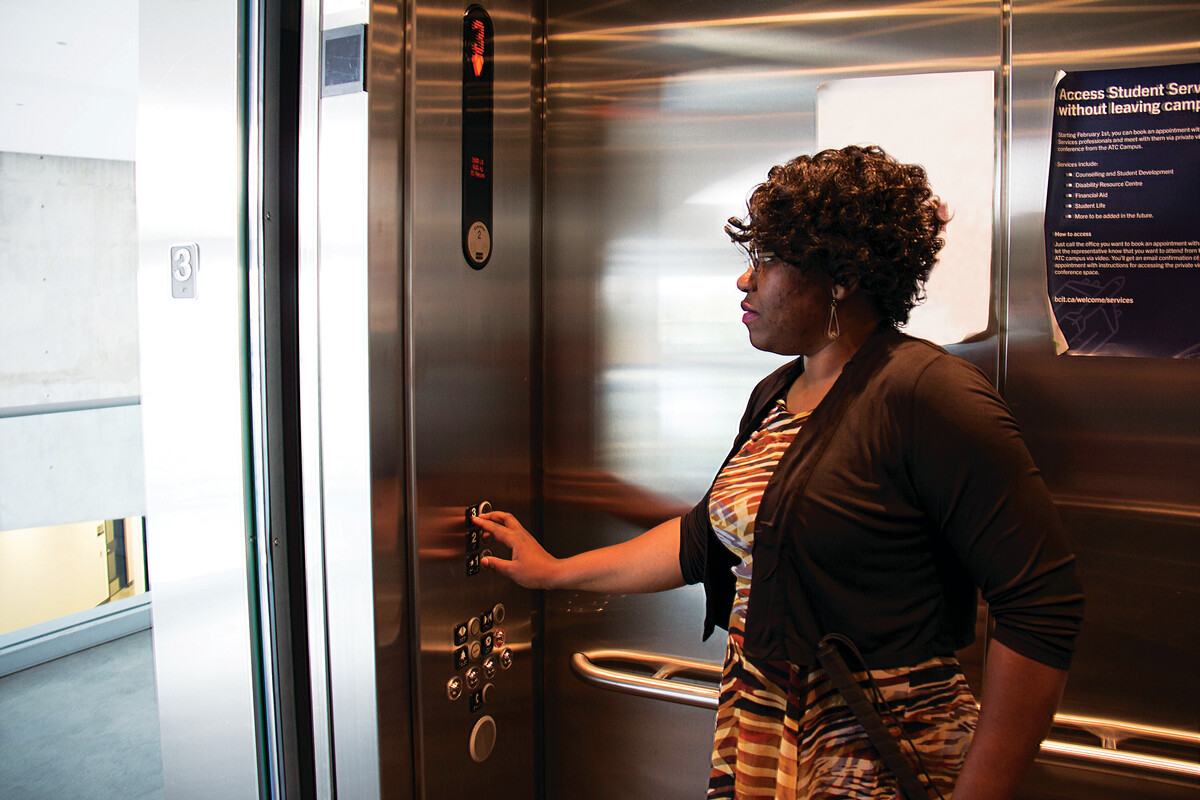
Braille is an essential tool for literacy
Braille literacy allows those with vision loss to learn the basic rules of writing and reading, including spelling, grammar and punctuation, in such a way that auditory learning cannot convey. It helps people who are blind or visually impaired understand how text is formatted on a page and increases their ability to engage with the text .
Braille opens the door to science
The braille system gives people who are blind or living with vision loss the opportunity to study math and science using the NEMETH code – a special type of braille used for math and science notation. It is easier to read equations and complex problems from a braille text book than listening.
As a Math and Philosophy graduate, I cannot imagine how I would have been able to read and solve complex problems by just listening to a textbook. Using my fingertips to feel the braille dots was key to my success.
Does Braille have a future?
Since its invention, the braille system has evolved. Various braille codes have been developed in order to keep up with the evolution of print materials. From a basic code that allowed people living with vision loss to access information, the literary and the mathematics Braille codes were developed. More recently the Braille Authority of North America (BAUNA) developed a specific computer Braille code.
With the evolution of the braille system, methods of producing braille have been also developed over time. First braille learners used hand writing frames, where each dot was painfully punched out. Then, slates and stylus, and Braille typewriters such as Perkins were made. I still remember the first day I learned braille. That evening one of my fingers was hurting after seven hours of punching out the dots using a slate and a stylus. Since the 1980s a number of braille printers, software tools, and braille displays have been designed and invented to help Braille readers convert print materials to braille faster.
Advances in technologies has introduced electronic braille, granting braille users access to a large variety of materials through devices such as a BrailleType, a single-touch text-entry system for touch screen devices allows the blind user to enter text as if they were writing Braille manually.
In today's world, the braille system is also used to communicate unlimited types of information. For example, the haptic chair could communicate to a blind person when the person opposite them is smiling or angry, and could instantly translate non-Braille text into sensations that translate into Braille bumps.
Also, Blind Maps, a navigation device that syncs to a user’s iPhone, provides indications on the route through a Braille-like interface.
